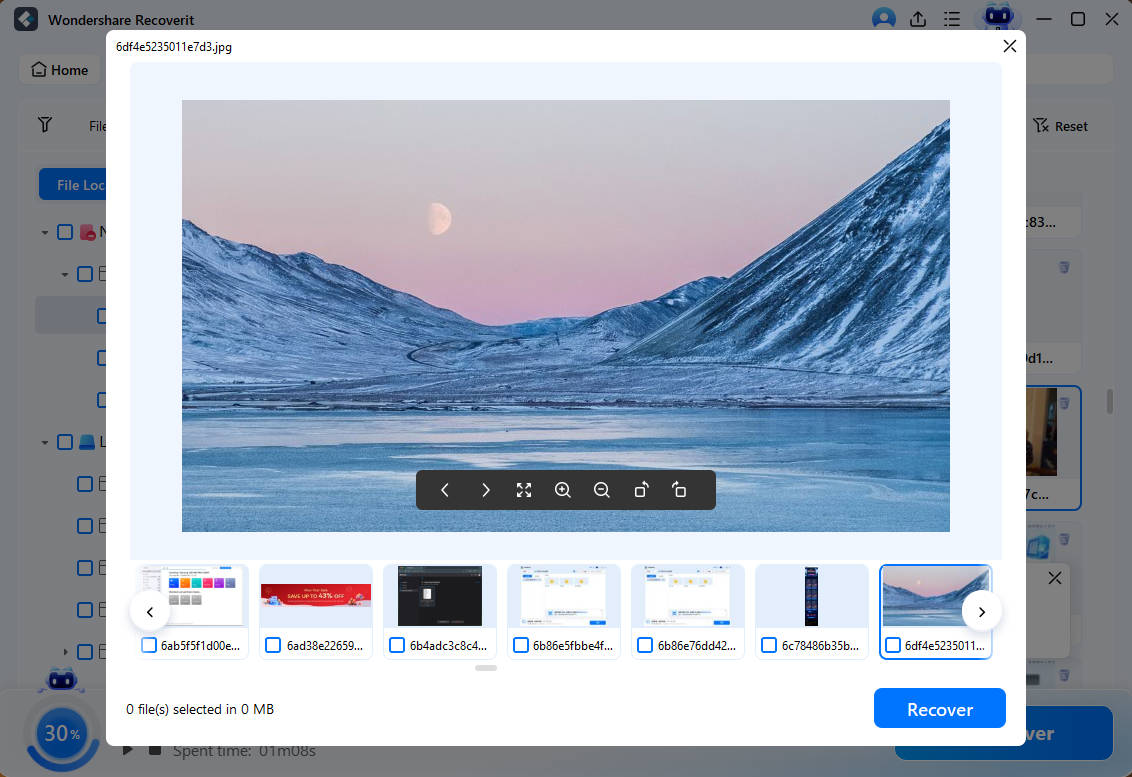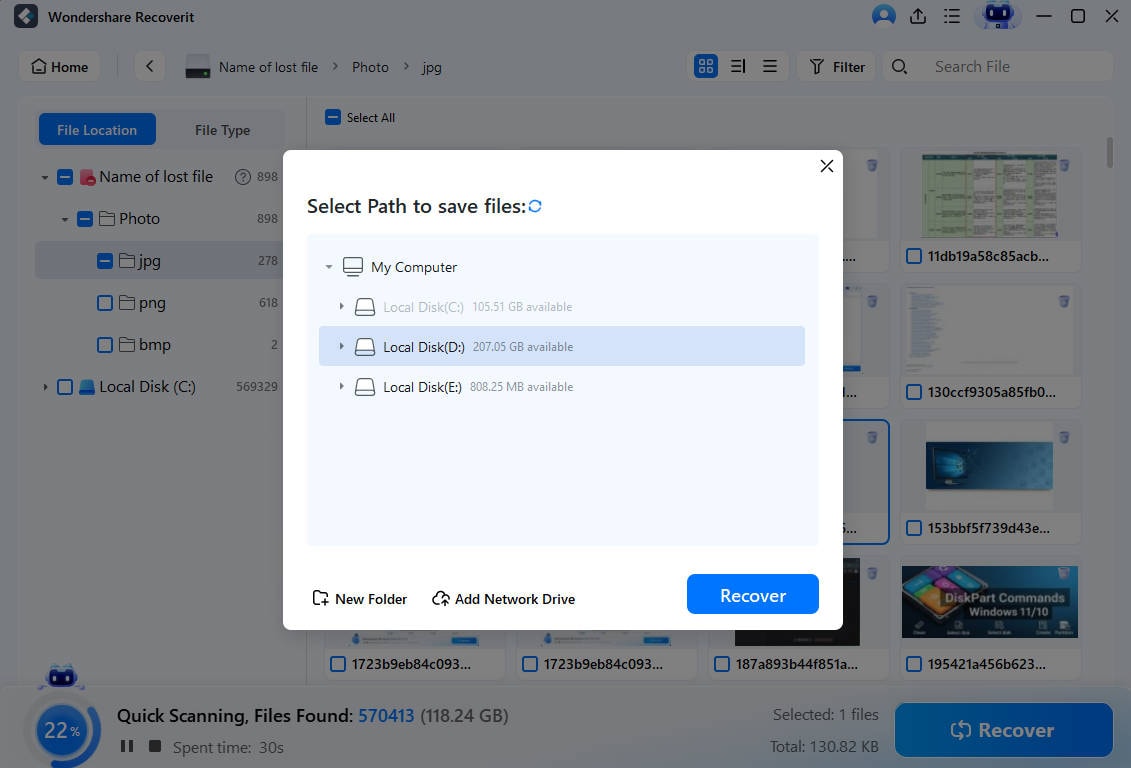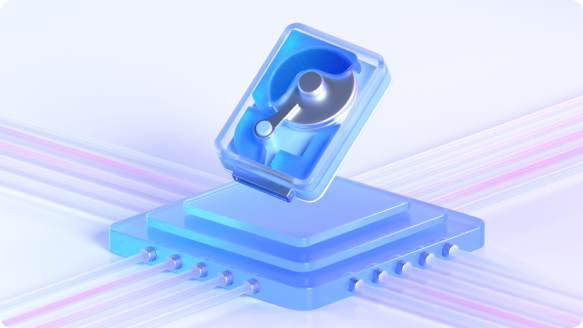How to Perform Low-Level Format on Hard Drive?
Have you formatted your hard drive, but can’t seem to troubleshoot an issue? Well, you might consider performing a low-level format on the hard drive. Unlike a high-level format, the low-level formatting of the drive would divide the disc into sectors and would erase all the saved data. In this post, I’m going to make you familiar with the difference between high-level format vs. low-level format and would also help you use the best low-level format hard drive tool.
What Is Low-Level Format (LLF)?
LLF (Low-level Format) of the hard drive is also known as “zero-filled” since it erases all the data from the storage and would replace it with zero-state bits.
- It will reset the state and the content of your hard disk by restoring it to its initial/factory state.
- To do this, it will first divide the disk into different cylinders > tracks > sectors. Afterward, each sector is divided into low-level segments like district DATA, identification ID, and so on.
- It will rewrite every segment with zero-state bits and would also reassign the partitioning tables, file formats, and every other kind of logical data.
- Mostly the low-level format on a hard drive is done when it is severely corrupted or has been infected by a virus.
Low-level Format vs. High-level Format
You might already know that disk formatting can be of two types – low-level and high-level. To further understand the concept let’s learn the difference between high-level format vs. low-level format.
Overall Principle
The high-level formatting only clears our data, initializes the partitioning tables, and creates new booting details (if needed). It will automatically get rid of logical errors and bad sectors. As listed above, the low-level format of the hard drive would reallocate the partitioning area and assigns zero-bits on every level to restore its factory state.
We can perform a high-level format on dedicated partitions of the hard drive while the low-level formatting is done of the entire hard drive at once.
What is deleted?
The low-level format in the hard drive would delete all the data, partitioning table, boot sectors, file formats, district DATA, identification ID, and everything related to the drive. The high-level format on the hard drive will only remove your data and would let you change the file format.
Time consumption
Needless to say, the high-level format of the hard drive might not take so much time while the low-level formatting is a more time-consuming process.
Usage
The low-level format on the hard drive is mostly done by the manufacturer when the product leaves the factory while the high-level format of the hard drive is often done by the user. You can do the high-level format on the hard drive by simply selecting any partition and choosing the format option from the context menu.

How to Perform Low-level Format on Hard Drive?
While the high-level format on the hard disk can be readily performed without any tool, it is not the case for low-level formatting. Although, there are several low-level format tools for Windows, Linux, and macOS that you can try. Here are some of the popular tools that you can consider for performing low-level formatting on the drive.
- Seagate
- Western Digital
- Toshiba
- Rufus
- Hitachi Disk Format
- DBAN
- Samsung – until
- Quantum
- Maxtor
For instance, let’s consider the example of the HDD Low-level Format Tool by HDDGuru. One of the major reasons we have picked the HDD Low-level Format Tool is because it is easy to use and is available for free. Also, it can perform a low-level format on every type of hard drives like SATA, MMC, IDE, SCSI, and more.
To learn how to use the HDD low-level format tool for hard dirk by HDDGuru, you can follow these basic steps:
Step 1 Install the HDD Low-level Format tool
To start with, you can go to the official website of HDDGuru or third-party sources like CNET to download it. Afterward, you can just launch the installer and complete the simple wizard to complete its installation.
Step 2 Select the Hard Drive to Format
Now, just launch the HDD Low-level Format tool on your computer and let it detect your system’s primary/secondary disk. On the wizard, you can select the disk you want to format and click on the “Continue” button.

Step 3 Complete the low-level formatting
That’s it! Now you can just wait for a while and let the application perform the low-level formatting on the disk. Once the data on the disk is deleted and the repartitioning is done, the computer will be restarted with factory settings. Try not to halt the low-level formatting process is between as it might take a while to complete.

The following video talks about how to format hard drive on Windows and Mac operation system. You can play the video to seek a more explicit guide.
Recover Data after LLF (Low-level Format) on your Hard Drive
While the low-level format on the hard drive will erase your data, there are still chances to get your files back. To meet these recovery requirements, you can take the assistance of Wondershare Recoverit data recovery software. It is a user-friendly recovery tool that can get your files back from all kinds of sources and has one of the highest recovery rates in the industry.
- Recoverit can help you get your data back even after the low-level format on the drive.
- It supports the recovery of all kinds of hard drives like SATA, IDE, SCSI, etc., and is also compatible with every major file format.
- You can get back your photos, videos, audios, documents, emails, and every other data type.
- There is a provision to filter the recovered data and even preview it on the native interface of Recoverit.
- The free version of Recoverit Data Recovery is available for free and can restore up to 100 MB of data.
Here’s how you can get your formatted data back with the help of a reliable tool like Recoverit Data Recovery.
Step 1 Select a source to scan
To begin with, you can just install and launch the Recoverit Data Recovery on your system and select a location to scan. You can pick the entire drive, a partition, a folder, or even an external storage media.

Step 2 Let the application retrieve your data
Once you click on the “Start” button, simply wait for a while as Recoverit would scan the selected location. You can view the progress from an on-screen indicator here and even pause/stop the process.

Step 3 Restore your files to any location
Afterward, you can use the inbuilt filters on the side to handpick the selected data of your choice. On the native interface of Recoverit, you can also preview your photos, videos, or documents and select what you wish to recover.

In the end, you can just select what you wish to recover and even choose a target location to save your files.

Final Words
There you go! After reading this post, you would be able to learn how to perform a low-level format on the hard drive in Windows or Linux. As you can see, with a dedicated low-level format hard drive tool, the whole process can be pretty easy. There are tons of applications out there that you can further explore to perform a low-level format on Mac/Windows hard drive. Besides that, if you have lost your hard drive data by mistake, then simply use a resourceful tool like Recoverit Data Recovery to restore your files.
People Also Ask
-
Why would I need to perform a low level format on a hard drive?
You may need to perform a low level format if you want to completely wipe all data from the hard drive, remove any viruses or malware, or resolve issues with the disk's physical structure.
-
Can I perform a low level format on a solid state drive (SSD)?
No, low level formatting is not recommended for SSDs as it can decrease the lifespan of the drive. SSDs have their own built-in mechanisms for managing data and maintaining performance.
-
How long does it take to perform a low level format on a hard drive?
The time it takes to perform a low level format can vary depending on the size and speed of the hard drive, but it can take several hours to complete.
-
Will performing a low level format on a hard drive fix all issues with the disk?
While a low level format can resolve some issues with a hard drive, it may not fix all problems. It's always a good idea to
back up important data before performing any kind of formatting on a hard drive.
What's Wrong with Drive
- Recover Your Drive
- Fix Your Drive
- Format/Wipe Drive
- Know Your Drive









 ChatGPT
ChatGPT
 Perplexity
Perplexity
 Google AI Mode
Google AI Mode
 Grok
Grok























Theo Lucia
chief Editor